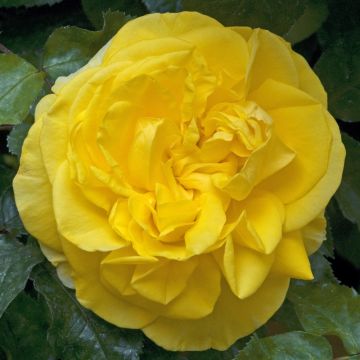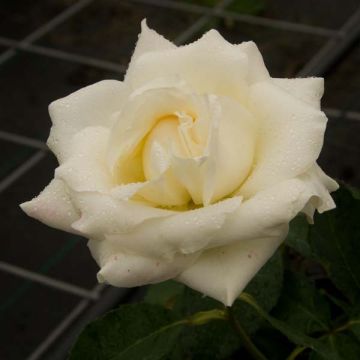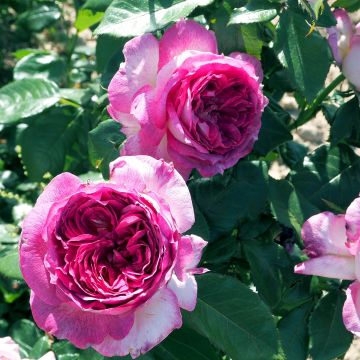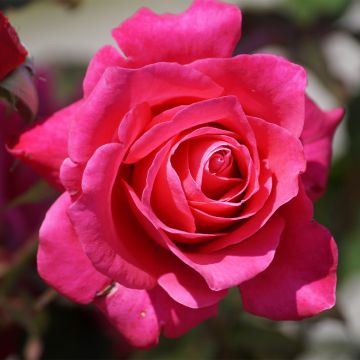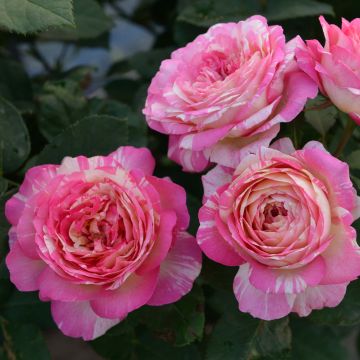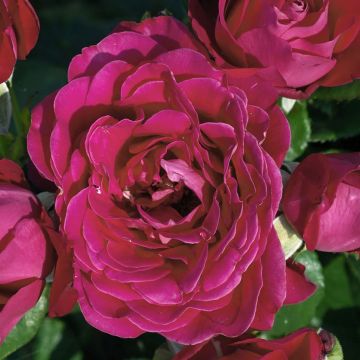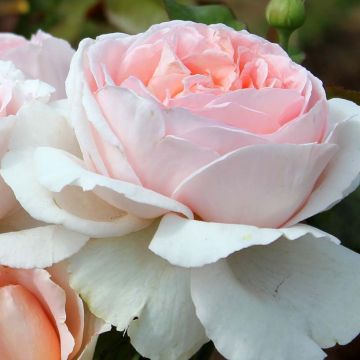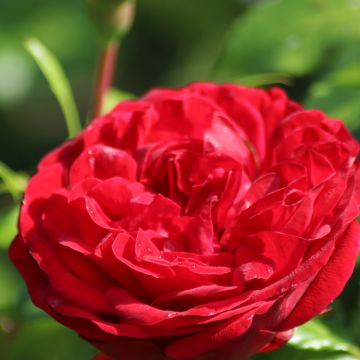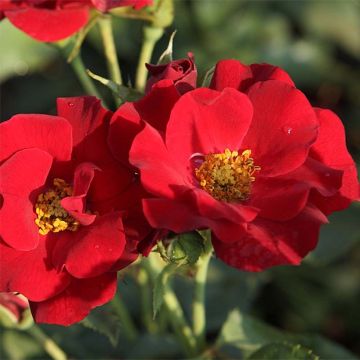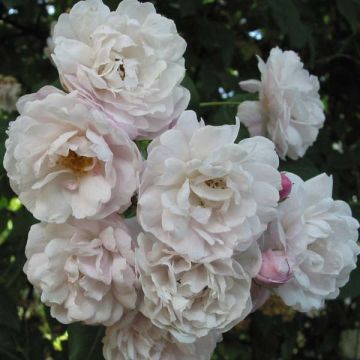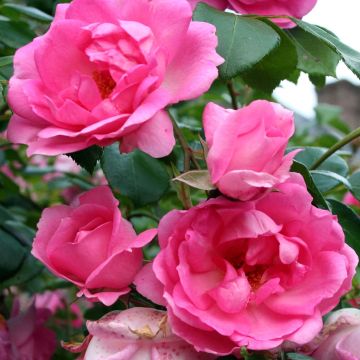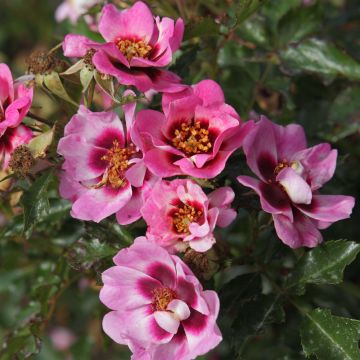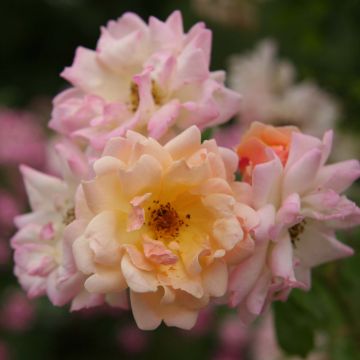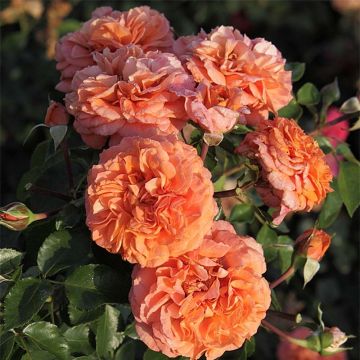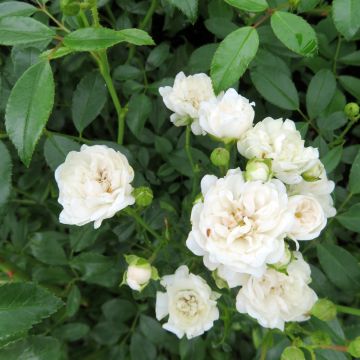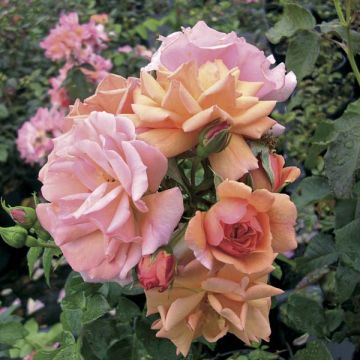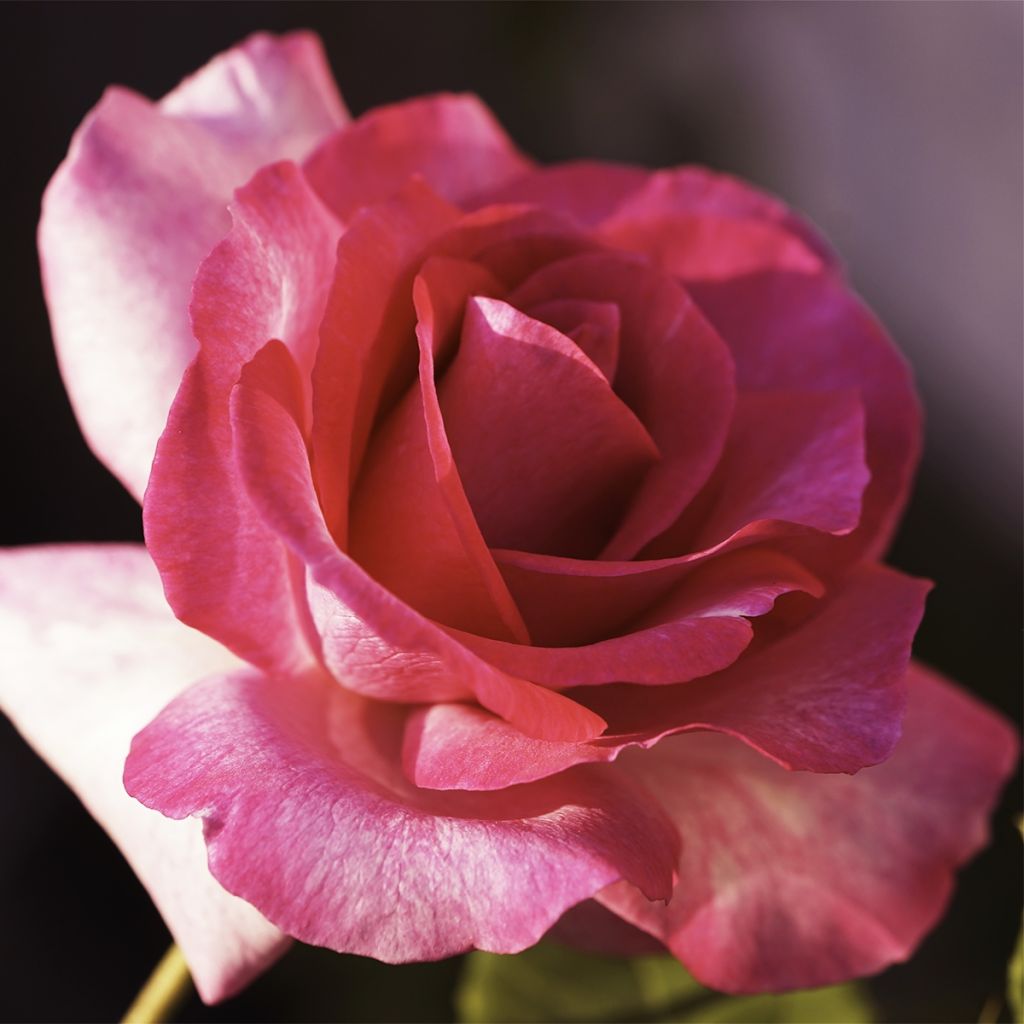

Rosa 'Guignol Orabrica'
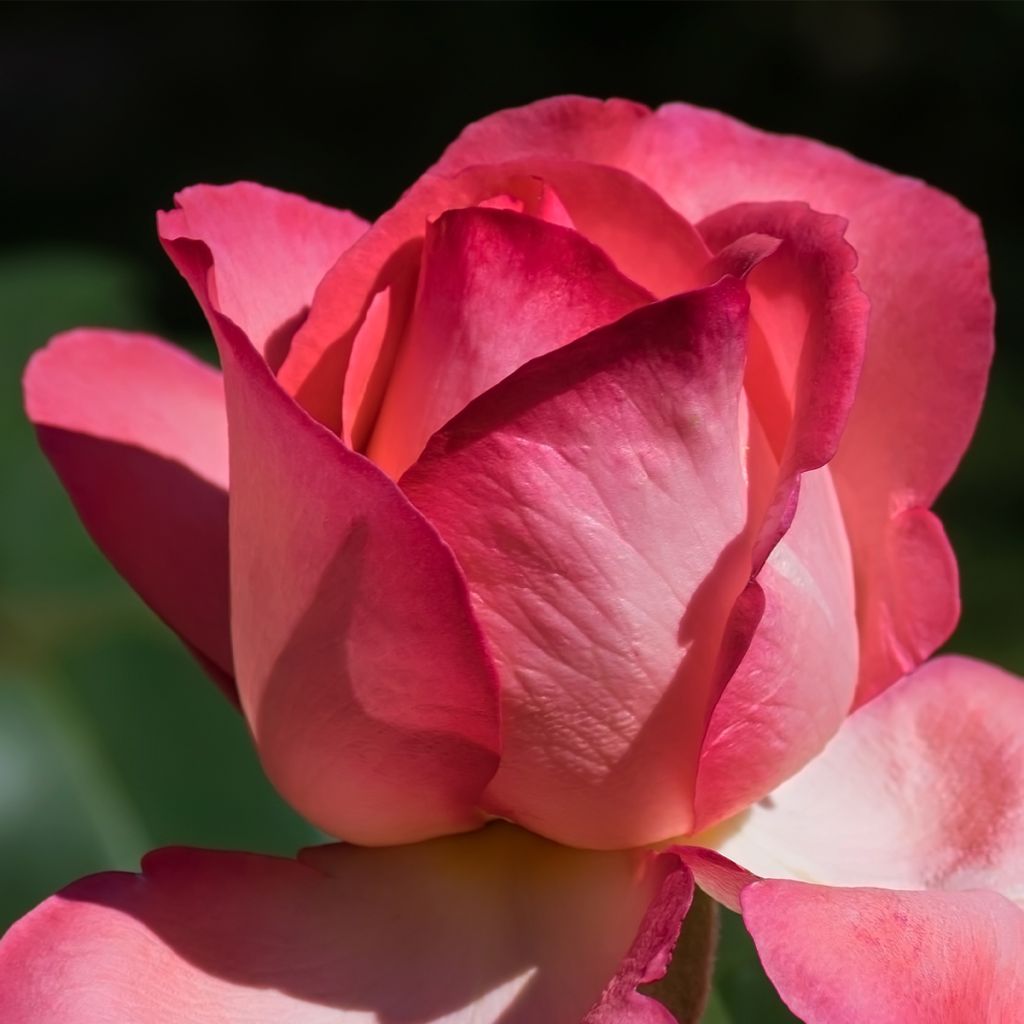

Rosa 'Guignol Orabrica'
Rosa 'Guignol Orabrica'
Rosa Guignol Orabrica
Modern hybrid rose.
This plant carries a 24 months recovery warranty
More information
We guarantee the quality of our plants for a full growing cycle, and will replace at our expense any plant that fails to recover under normal climatic and planting conditions.
From €5.90 for pickup delivery and €6.90 for home delivery
Express home delivery from €8.90.
From €5.90 for pickup delivery and €6.90 for home delivery
Express home delivery from €8.90.
Delivery to Corse prohibited: UE law prohibits the import of this plant from mainland France to Corse as part of the fight against Xylella fastidiosa. Please accept our sincere apologies.
More information
Does this plant fit my garden?
Set up your Plantfit profile →
Description
The 'Guignol' Rose is a perpetual variety that is both elegant and romantic, bearing large, well-formed flowers that are double without excess, a beautiful deep pink, lighter in the centre and on the reverse of the petals. The bush is adorned with very healthy, glossy green foliage. Delicately scented, these roses emit a fragrance that can be smelled several metres away, both in the garden and in bouquets. The famous Lyon puppet deserved a rose named after him to celebrate the 250th anniversary of the birth of its creator, Laurent Mourguet.
The 'Guignol' Rose (Orabrica) was introduced to the market in 2019 by the Orard rose gardens, a family business located in Feyzin, not far from Lyon. It is classified as both a modern hybrid tea rose and a large-flowered rose. It is a very remontant rose that blooms from June to October in successive waves. The plant forms a small bushy shrub with slightly upright growth, vigorous and fast-growing. It will reach about 80cm (32in) in height and 50-60cm (20-24in) in width. The flowers are slightly turbinate, composed of 30 to 35 dark pink petals with a lighter base and pale pink reverse. Their fragrance is more noticeable in warm weather. The glossy foliage, a fairly dark green, is disease-resistant and perfectly enhances the colour of the roses. It is deciduous in winter. This variety now enriches the rose garden of the Parc de la Tête d'Or, one of the 20 most beautiful rose gardens in the world.
This 'Guignol' rose will find its place in the garden in a large rose bed, but can also be placed as a solitary plant in a well-maintained garden or in a large pot on the terrace. It adapts to all soils that are not too dry and all climates, tolerating both cold and heat, which allows it to be welcomed without reservation from the north to the south of our country, even at medium altitude. It pairs perfectly with white, purple, mauve, and pink roses, as well as with beautiful and easy-to-grow plants such as perennial geraniums (Geranium 'Blue Cloud', 'Anne Folkard', 'Nimbus', 'Orion'), bellflowers (lactiflora, rapunculoides), catmints, cornflowers, foxgloves, phlox... Its flowers can be used to create elegant bouquets that delicately perfume the house.
Report an error about the product description
Rosa 'Guignol Orabrica' in pictures
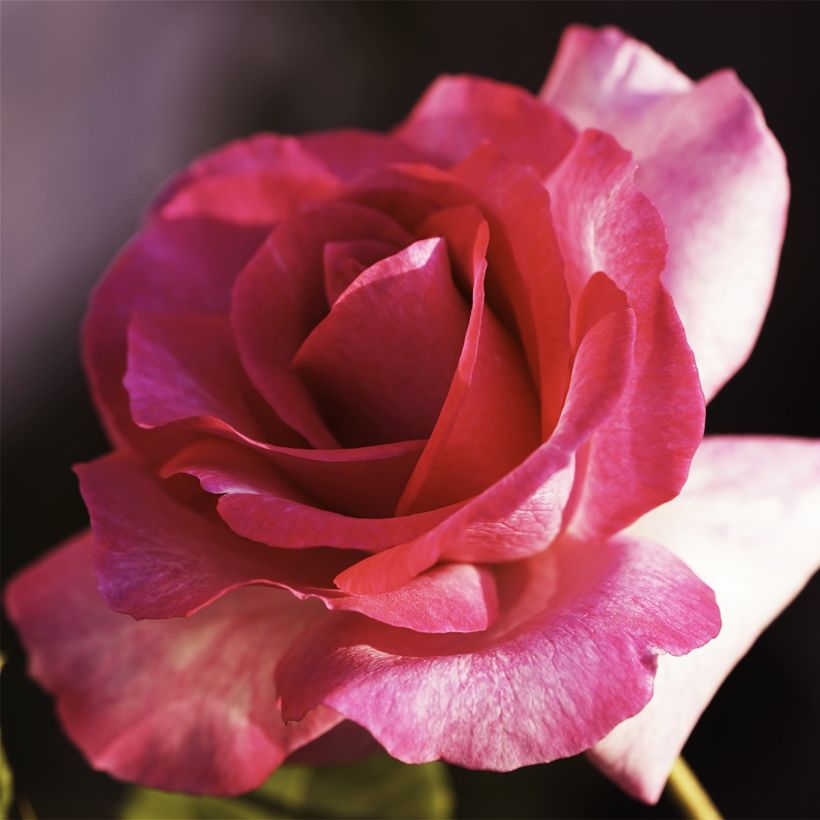

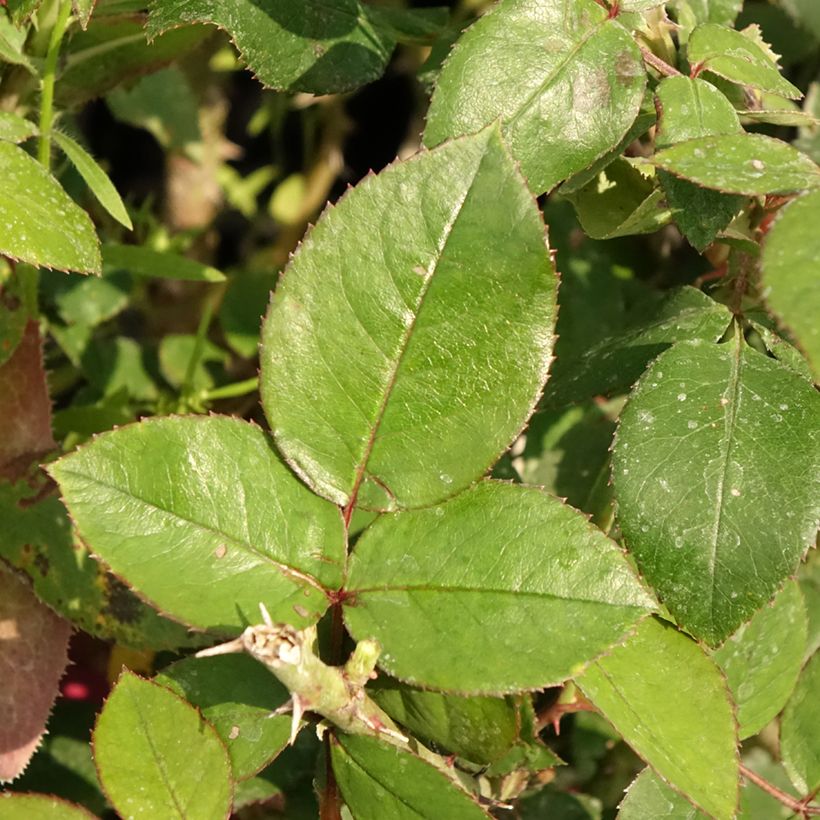

Plant habit
Flowering
Foliage
Botanical data
Rosa
Guignol Orabrica
Rosaceae
Modern hybrid rose.
Cultivar or hybrid
Other Large-flower tea Roses
Planting and care
To plant your 'Guignol' rose, work the soil to a depth of 40cm (16in) by crumbling the soil and adding a bottom amendment such as dried blood or dehydrated horn. Position your plant by covering the top of the root ball with 3cm (1in) of soil, fill in the hole and water generously to eliminate air pockets. In dry weather, it is necessary to water regularly for a few weeks to facilitate root growth. Also, remember to provide your rose with special rose fertilizer that stimulates plant flowering.
Planting period
Intended location
Care
-
, onOrder confirmed
Reply from on Promesse de fleurs
Roses by purpose
Haven't found what you were looking for?
Hardiness is the lowest winter temperature a plant can endure without suffering serious damage or even dying. However, hardiness is affected by location (a sheltered area, such as a patio), protection (winter cover) and soil type (hardiness is improved by well-drained soil).

Photo Sharing Terms & Conditions
In order to encourage gardeners to interact and share their experiences, Promesse de fleurs offers various media enabling content to be uploaded onto its Site - in particular via the ‘Photo sharing’ module.
The User agrees to refrain from:
- Posting any content that is illegal, prejudicial, insulting, racist, inciteful to hatred, revisionist, contrary to public decency, that infringes on privacy or on the privacy rights of third parties, in particular the publicity rights of persons and goods, intellectual property rights, or the right to privacy.
- Submitting content on behalf of a third party;
- Impersonate the identity of a third party and/or publish any personal information about a third party;
In general, the User undertakes to refrain from any unethical behaviour.
All Content (in particular text, comments, files, images, photos, videos, creative works, etc.), which may be subject to property or intellectual property rights, image or other private rights, shall remain the property of the User, subject to the limited rights granted by the terms of the licence granted by Promesse de fleurs as stated below. Users are at liberty to publish or not to publish such Content on the Site, notably via the ‘Photo Sharing’ facility, and accept that this Content shall be made public and freely accessible, notably on the Internet.
Users further acknowledge, undertake to have ,and guarantee that they hold all necessary rights and permissions to publish such material on the Site, in particular with regard to the legislation in force pertaining to any privacy, property, intellectual property, image, or contractual rights, or rights of any other nature. By publishing such Content on the Site, Users acknowledge accepting full liability as publishers of the Content within the meaning of the law, and grant Promesse de fleurs, free of charge, an inclusive, worldwide licence for the said Content for the entire duration of its publication, including all reproduction, representation, up/downloading, displaying, performing, transmission, and storage rights.
Users also grant permission for their name to be linked to the Content and accept that this link may not always be made available.
By engaging in posting material, Users consent to their Content becoming automatically accessible on the Internet, in particular on other sites and/or blogs and/or web pages of the Promesse de fleurs site, including in particular social pages and the Promesse de fleurs catalogue.
Users may secure the removal of entrusted content free of charge by issuing a simple request via our contact form.
The flowering period indicated on our website applies to countries and regions located in USDA zone 8 (France, the United Kingdom, Ireland, the Netherlands, etc.)
It will vary according to where you live:
- In zones 9 to 10 (Italy, Spain, Greece, etc.), flowering will occur about 2 to 4 weeks earlier.
- In zones 6 to 7 (Germany, Poland, Slovenia, and lower mountainous regions), flowering will be delayed by 2 to 3 weeks.
- In zone 5 (Central Europe, Scandinavia), blooming will be delayed by 3 to 5 weeks.
In temperate climates, pruning of spring-flowering shrubs (forsythia, spireas, etc.) should be done just after flowering.
Pruning of summer-flowering shrubs (Indian Lilac, Perovskia, etc.) can be done in winter or spring.
In cold regions as well as with frost-sensitive plants, avoid pruning too early when severe frosts may still occur.
The planting period indicated on our website applies to countries and regions located in USDA zone 8 (France, United Kingdom, Ireland, Netherlands).
It will vary according to where you live:
- In Mediterranean zones (Marseille, Madrid, Milan, etc.), autumn and winter are the best planting periods.
- In continental zones (Strasbourg, Munich, Vienna, etc.), delay planting by 2 to 3 weeks in spring and bring it forward by 2 to 4 weeks in autumn.
- In mountainous regions (the Alps, Pyrenees, Carpathians, etc.), it is best to plant in late spring (May-June) or late summer (August-September).
The harvesting period indicated on our website applies to countries and regions in USDA zone 8 (France, England, Ireland, the Netherlands).
In colder areas (Scandinavia, Poland, Austria...) fruit and vegetable harvests are likely to be delayed by 3-4 weeks.
In warmer areas (Italy, Spain, Greece, etc.), harvesting will probably take place earlier, depending on weather conditions.
The sowing periods indicated on our website apply to countries and regions within USDA Zone 8 (France, UK, Ireland, Netherlands).
In colder areas (Scandinavia, Poland, Austria...), delay any outdoor sowing by 3-4 weeks, or sow under glass.
In warmer climes (Italy, Spain, Greece, etc.), bring outdoor sowing forward by a few weeks.


































